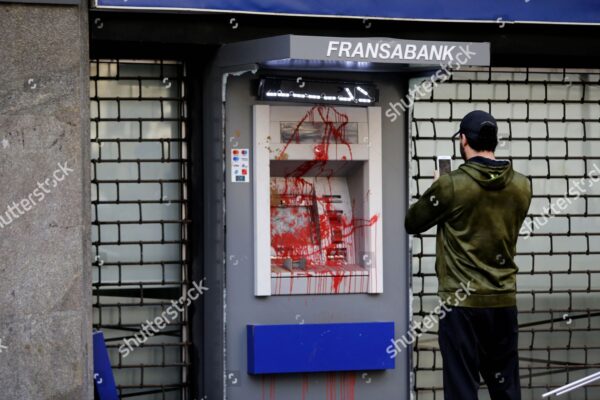Reforms recommended by the IMF, including a halt to government borrowing from the central bank, have yet to be implemented
The Secretary-General of the Association of Lebanese Banks, Fadi Khalaf, revealed that approximately $51 billion of Lebanese depositors’ funds have been lost since late 2019, Sputnik reported on 16 May.
While speaking about Lebanon’s banking crisis and ongoing negotiations with the International Monetary Fund (IMF), Khalaf stated that it has been “forty-three months, during which depositors lost fifty-one billion dollars of their deposits, and the state is still discussing projects, then withdrawing some of them and reformulating others, and if some laws are approved, the IMF is dissatisfied with them.”
He said that the $51 billion of depositors’ funds were dispensed as loans granted to the private sector or to the government to fund the purchases of imported goods, including fuel.
Funds loaned to the government came from mandatory bank reserves, which are hard currency deposits parked by local lenders at the central bank. These reserves represent a percentage of customer deposits and are usually not drawn upon except in exceptional circumstances, with the correct legal permission.
The secretary-general of the Association of Banks mourned what he described as “politics” that “preferred to transform the Lebanese economy into something resembling communist economies, yet the state did not even respect the concepts of communism, so the bulk of what was squandered went to the pockets of powerful beneficiaries [in Lebanon] and abroad more than to the people.”
In March, the IMF warned that the government must stop borrowing from the central bank and that its failure to implement reforms had exacerbated the country’s economic and banking crises.
“One would have expected more in terms of implementation and approval of legislation” related to reforms, IMF mission chief Ernesto Rigo told a news conference, while noting “very slow” progress. “Lebanon is in a very dangerous situation,” he added, in what Reuters described as “unusually frank remarks.”
Lebanon signed an agreement with the IMF nearly one year ago but has not met the conditions to secure a $3 billion aid package.
Without implementing reforms, Lebanon “will be mired in a never-ending crisis,” the IMF warned in a written statement.
Since 2019, the lira has lost 98 percent of its value against the US dollar, leading to crippling inflation, mass poverty, and a wave of emigration from the small Mediterranean nation.
The crisis erupted after decades of reckless spending and corruption among Lebanon’s elite, some of whom led banks that lent heavily to the state, including billionaire and former prime minister Saad Hariri.
Losses in the financial system are estimated at more than $70 billion, the majority of which were accrued at the central bank, which borrowed dollars from private banks at unusually high-interest rates to maintain an unsustainable peg of the lira to the dollar.
“No more borrowing from the central bank,” Rigo said, while warning that Lebanon should move towards a floating exchange rate based on market forces rather than maintaining multiple rates determined by the central bank.
THE CRADLE


Leave a Reply
You must be logged in to post a comment.